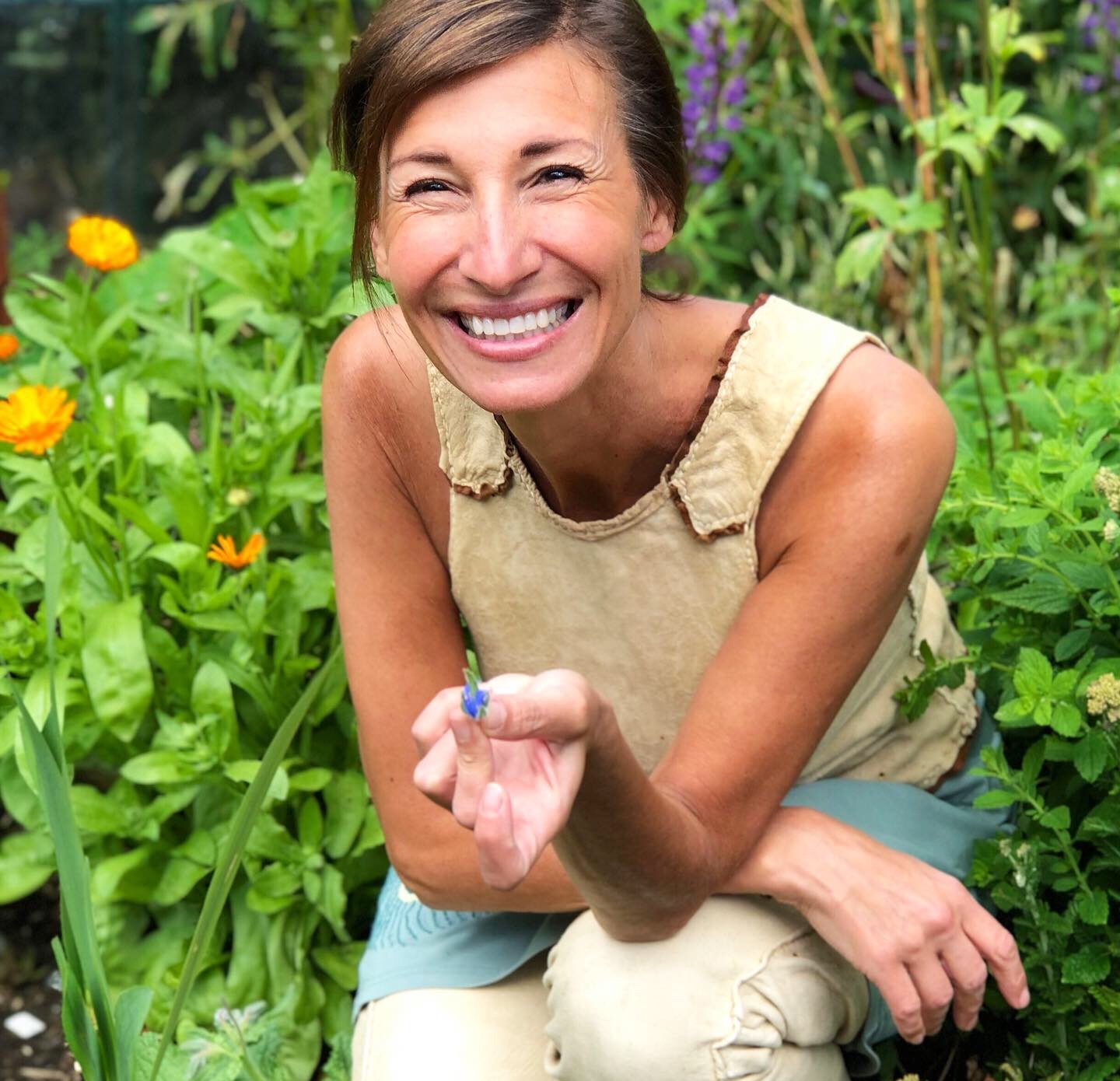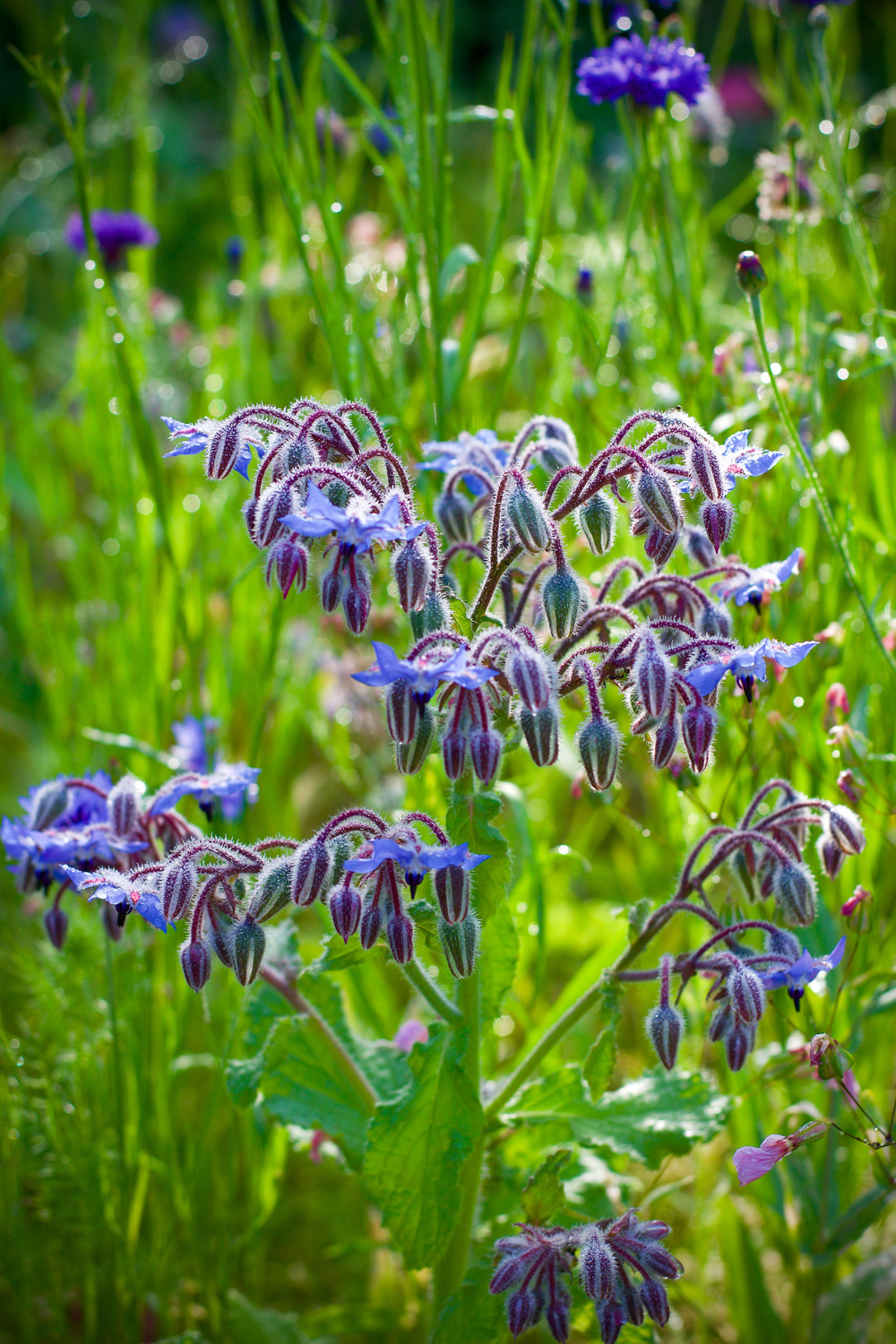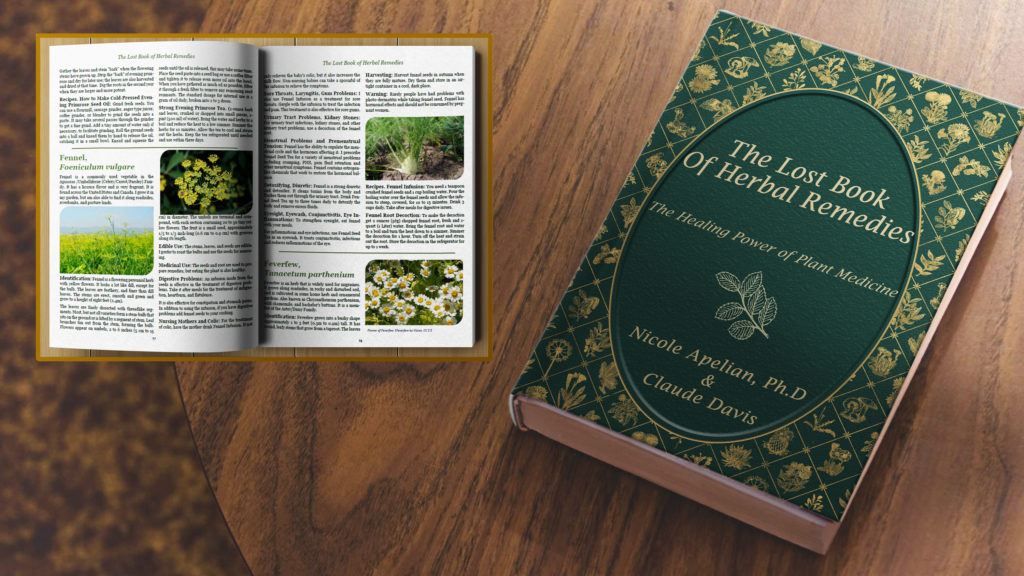Borage – An easy to grow edible & medicinal plant
I love borage. I love how easy it is to grow in my garden, I love its pretty blue flowers, and I love the cucumbery taste of its leaves.
Borage, or Borago officinalis, is also known as starflower. It’s a great addition to your garden as it brings in pollinators and butterflies. Bees love it!
Basic Identification:
Borage has hollow branched round stems and is covered with stiff white hairs. It has alternate, wrinkled oval leaves. Each leaf is about 3 inches long and about 1 1/2 inches across. The lower leaves have tiny hairs on the upper surface and on the veins on the lower side.
Its star-shaped blue flowers hang in clusters and have prominent black anthers. These anthers form a cone in the center that is referred to as a beauty spot.
Where Does It Grow?
Borage is easy to cultivate in the garden. It’s an annual that often self-seeds, staying in your garden for many years, much like Calendula does.
Edible Uses:
Borage are beautiful as an edible garnish for a dessert, drink or salad. I eat the young leaves, stems, and flowers – cooked or raw. The leaves have a salty flavor similar to cucumber. The young leaves are best as older ones are often too hairy to be palatable. Borage leaf tea makes a wonderful refreshing summer drink.
Borage seeds are best knows as a healthy source of gamma-linolenic acid (GLA), a beneficial Omega-6 fatty acid.
Medicinal Uses:
Here are my 7 most common uses for Borage:
- Stress and HPA-Dysfunction (“Adrenal Fatigue”): Borage is a calming herb known to relieve stress. It balances cortisol levels in the body, thus aiding the stress response and HPA-Dysfunction, which is often called Adrenal Fatigue.
- GLA Protects the Brain: The GLA in borage seed oil helps protect the brain against neurodegeneration. It is known to protect the brain against synaptic failure in Alzheimer’s disease and to improve resistance to the disease.
- Regulates Hormones, Menstrual Issues & Metabolism: Borage helps treat hormonal imbalances and eating borage with meals regularly regulates metabolism. Borage reduces symptoms of premenstrual syndrome (PMS), menopause, and helps regulate the menstrual cycle.
- Reduces Fevers: Borage stimulates sweat glands to produce sweat and cool the body. This property is beneficial for treating fevers in colds and respiratory illnesses. It is also a diuretic.
- Lowers Blood Pressure/Hypertension: Recent studies have confirmed the benefits of eating borage or drinking its juice daily to lower high blood pressure.
- Macular Degeneration: One cause of macular degeneration is a lack of fatty acids. Borage seeds contain up to 30% GLA, a beneficial Omega-6 fatty acid, for both treatment and prevention of macular degeneration.
- Treats Hangovers: Borage Tea made from a combination of dried leaves and flowers is an effective treatment for hangover.
Borage has many more medicinal uses. My book, The Lost Book of Herbal Remedies: The Healing Power of Plant Medicine has 15 uses for this incredible herb. I love all that nature provides!
Safety
Borage leaves contain a small amount of pyrrolizidine alkaloids and other compounds that are toxic to the liver. The levels are low and are not a problem for healthy people, but people with liver disease should not use borage. Pregnant women should avoid using borage. In some people, borage causes skin dermatitis. Persons with schizophrenia or epilepsy should avoid using borage.
Do you DIY?
Are you interested in making your own herbal remedies at home and learning about the many plants, lichens, and mushrooms you can find out your own back door? If so please pick up a copy of my book: “The Lost Book Of Herbal Remedies: The Healing Power of Plant Medicine” today!






